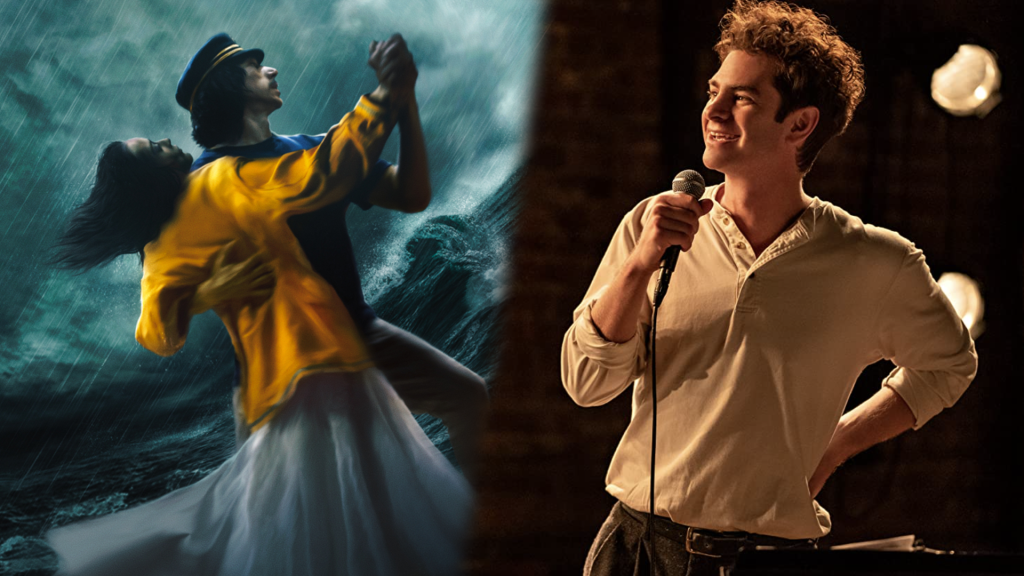Apart from being really freaking good, the only thing these two films have in common is me arriving one to three minutes too late to my showtimes in an effort to skip twenty minutes of movie trailers. And a disgracefully late turnaround writing about them. Anyway…
Oscar for the Oscars

My introduction to Paul Schrader was with First Reformed in 2018, a film so rapturously good I’m not ashamed of the otherwise regrettable tardiness of my exposure to one of cinema’s greats. And I’m still late to the Schrader party three years later as The Card Counter is only my second encounter with the acclaimed writer/director. If/when I finally decide to course through his filmography, it’ll be an interesting experience, because nearly fifty (fifty!) years after his debut, The Card Counter is a thorough demonstration of Schrader’s decades of honed craftsmanship and wisened mortal outlook.
RELATED: IN BAD FAITH — ‘THE EYES OF TAMMY FAYE’ REVIEW
Masterfully capturing years of cannibalizing regret, flagellating remorse, and the faintest glimmers of hope in his frosty face of flint, Oscar Isaac plays William Tell, a former soldier of Abu Ghraib who manages his guilt since by calculatedly gambling in casinos across the United States. Though an expert card counter, Tell bets and wins small, sticking to the shadows and avoiding attention. When he meets and begins traveling with Cirk (Tye Sheridan), a troubled young man seeking revenge for his own veteran father’s traumatized home life, Tell joins the World Series of Poker in an effort to quell his companion’s rage and create a clean start for the two of them.
Schrader writes and directs with impeccable control, expertly shifting the tide of The Card Counter from ice cold practicality to burning hot thrashes of stylization. The film primarily takes on an elegantly moody rhythm as it paces through the chilled demeanor Tell uses to keep his invisible, yet all too prescient ghosts at bay, Isaac’s performance telling all in his character’s pained bouts of silence. Meanwhile, Tiffany Haddish stokes the fire with just enough of her boundless charm to warm the presence while opening the film’s heart up for the subtle journey of soul-searching to come.
RELATED: HOLY GRAIL – ‘THE GREEN KNIGHT’ REVIEW
Because Schrader keeps everything so tightly wound and calculated, the spontaneous eruptions of narrative force he blindsidingly looses hit like a sack of bricks every time. Tell’s story is a simple one, but one wrought with so much emotional depth, maturity, and thorough craftsmanship that The Card Counter will easily go down as one of the best films of 2021, as well as yet another worthy addition to Schrader’s decades-old catalog of ponderous cinema.
Dusk before the darkness

Blue Bayou captures the most bittersweet of snapshots in its quintessentially American story about a culturally naturalized immigrant. Writing, directing, and leading his very personal opus, Justin Chon puts in major work as Antonio LeBlanc, a Korean man threatened with deportation from the United States on a technicality decades after being adopted as an infant by an American couple. His screenplay does get a little carried away with some overdone dream symbolism and a pair of plot-driving bastard cops who detract from the otherwise grounded situation the film is covering, but this is a real knockout overall.
RELATED: A CAGE WITH NO RAGE PLAYS JUST AS SWEET – ‘PIG’ REVIEW
Chon defers straight commentary to raw emotional appeal, wading in the confusion, desperation, and beauty of each transient moment before Antonio’s inevitable midnight strikes. Covered in tattoos and sporting a very specific street twang, Antonio’s pairing to his southern belle wife, Kathy (played by Alicia Vikander), is almost comical, but the onscreen couple sells every bit of their romance and the tragedy it tells rooted within America’s highs, lows, and everything in between. Because as a man alienated from his adoptive and native homes, each taste of respite comes with a bitterer truth for Antonio, and his dynamic with Lind Dan Pham’s Parker, a Vietnamese immigrant, thoughtfully meditates on their places within their nested cultural grounds. The torment and wonder of our hero’s duality escalates into a sobering, too true journey of compassionate tears flawlessly captured in what will likely go down as 2021’s most magical scene in cinema: Vikander’s flooring cover of the film’s namesake by Linda Ronstadt. Good. LORD.
READ NEXT: 2020 SAVIOR – ‘JUDAS AND THE BLACK MESSIAH’ REVIEW




